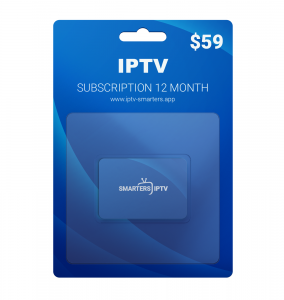Understanding IPTV: What is IPTV and Why Should You Care?
Introduction to IPTV
In the rapidly evolving world of digital entertainment, IPTV stands out as a game-changer. IPTV, or Internet Protocol Television, is a method of delivering television content over the internet, rather than through traditional terrestrial, satellite, or cable television formats. If you’ve ever wondered about the buzz around IPTV and why it’s becoming so popular, you’re in the right place.
What is IPTV?
Definition of IPTV
IPTV, short for Internet Protocol Television, is a system where television services are delivered using the internet protocol suite over a packet-switched network such as the internet, instead of being delivered through traditional terrestrial, satellite signal, and cable television formats.
How IPTV Works
IPTV works by converting a traditional broadcast signal into a digital format that can be transmitted over the internet. This means you can stream live TV channels or on-demand content via your internet connection, using devices such as smartphones, tablets, smart TVs, and dedicated IPTV boxes.
Types of IPTV Services
Live IPTV
Live IPTV refers to streaming live TV channels in real-time. This is similar to watching TV through a traditional cable or satellite service but delivered via the internet.
VOD (Video On Demand)
Video on Demand (VOD) allows users to watch any video content at any time. Examples include streaming services like Netflix and Amazon Prime, where you can choose what to watch and when to watch it.
Time-Shifted IPTV
Time-shifted IPTV lets you watch previously broadcasted content at a later time. This includes catch-up TV services and programs that allow you to rewind and pause live TV.
Benefits of IPTV
Wider Range of Content
IPTV offers a vast range of channels and content from all over the world, giving viewers access to a diverse selection of programming.
Flexibility and Convenience
With IPTV, you can watch your favorite shows and movies on various devices, anywhere you have an internet connection. No more being tied to your living room TV.
Cost-Effective
IPTV services are often more affordable than traditional cable or satellite packages, offering better value for money with customizable subscription plans.
Setting Up IPTV
Choosing the Right IPTV Service Provider
Selecting a reliable IPTV service provider is crucial. Look for providers with good reviews, a wide range of channels, and excellent customer support.
Compatible Devices
Ensure your devices are compatible with IPTV services. This includes smart TVs, streaming devices (like Roku or Amazon Fire Stick), smartphones, and tablets.
Internet Connection Requirements
A stable and fast internet connection is essential for IPTV. The recommended speed for standard definition (SD) is at least 3 Mbps, for high definition (HD) 5-8 Mbps, and for ultra-high definition (UHD) 25 Mbps or higher.
Potential Challenges with IPTV
Internet Dependency
IPTV relies on a stable internet connection. Any disruption in internet service can affect your viewing experience.
Quality and Reliability
The quality and reliability of IPTV services can vary. It’s important to choose a reputable provider to ensure a consistent and high-quality viewing experience.
Legal Considerations
Ensure that the IPTV service you are using is legal. There are many illegal IPTV services that offer pirated content, which can lead to legal issues and unreliable service.
Future of IPTV
Technological Advancements
As internet speeds and technology continue to improve, IPTV services will become even more reliable and higher in quality, providing a better viewing experience.
Increased Adoption
With the growing popularity of streaming services and the decline of traditional TV, more people are likely to adopt IPTV for their entertainment needs.
Conclusion
IPTV represents the future of television, offering unparalleled flexibility, a wide range of content, and cost-effective viewing options. Whether you’re a tech enthusiast or just looking for a better way to watch TV, IPTV has something to offer.
FAQs
1. What is IPTV?
IPTV stands for Internet Protocol Television, a method of delivering television content over the internet instead of through traditional terrestrial, satellite, or cable formats.
2. How does IPTV work?
IPTV works by converting a traditional broadcast signal into a digital format that can be transmitted over the internet, allowing you to stream live TV channels or on-demand content via your internet connection.
3. What are the benefits of IPTV?
IPTV offers a wider range of content, flexibility and convenience, and is often more cost-effective than traditional cable or satellite TV packages.
4. What do I need to use IPTV?
To use IPTV, you need a compatible device (such as a smart TV, smartphone, tablet, or streaming device), a reliable IPTV service provider, and a stable, high-speed internet connection.
5. Is IPTV legal?
IPTV itself is legal, but it’s important to use services that offer licensed content to avoid any legal issues. Ensure the provider you choose is legitimate and authorized to distribute the content they offer.
By understanding what IPTV is and how it works, you can make an informed decision about whether it’s the right choice for your entertainment needs. With its numerous benefits and growing popularity, IPTV is poised to revolutionize the way we watch television.
For more information on IPTV services, visit IPTV Smarters.


